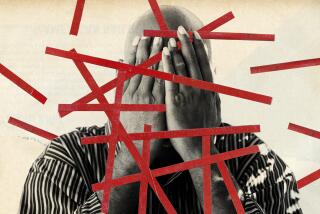Juries Hamstrung on Confining Mentally Ill
- Share via
I am in complete agreement with the arguments expressed in “Waiting for Danger Can Prove Deadly to the Mentally Ill,” (Commentary, Nov. 13).
In 1994, I was assigned to the mental health calendar of Orange County Superior Court. One of my duties was to preside over trials of cases involving whether individuals could be confined involuntarily to mental health treatment facilities. The issue presented to the jury is whether the respondent is “gravely disabled,” a legal term defined as a condition in which a person, as a result of mental disorder, is unable to provide for his or her basic personal needs for food, clothing, or shelter, with or without the assistance of willing and responsible third parties.
Juries apply this standard conscientiously. Because jury members must answer the question based upon their evaluation at the time of the trial, they easily can be convinced such a person can meet his basic personal needs, even though his quality of life is on a wretched level and he is in need of treatment.
An example was the case of a man who lived under a freeway and got his food from a McDonald’s dumpster. He entered the mental health system when the police arrested him for blocking traffic. He testified during the trial that the police wanted to sexually molest him, and said that he would resist any attempt to place him in custody in the future. There was expert testimony that he had a serious bipolar illness, that he responded well to medication while in a facility and that he had a good chance of leading a normal existence if he continued in treatment. However, the past experience was that once he was out of the facility, he stopped taking his medication.
The jury followed the law based on the instruction defining “gravely disabled,” and he was released to go back to his home beneath the freeway. I was concerned because it was apparent that he soon would be back in the mental health system, that he undoubtedly would have encounters with the police, that he violently would resist efforts to take him into custody.
At present we have a revolving-door system. It serves neither the society nor the mentally ill population. We are placing far too much responsibility on the police to deal with this public health problem while diverting precious resources away from treatment.
The recent failed effort by the Legislature to give judges and juries broader discretion in deciding whether a person is in need of custodial care and treatment should be revived. The arbitrary judgment of one powerful state senator should not be allowed to frustrate this badly needed reform.
More to Read
Sign up for Essential California
The most important California stories and recommendations in your inbox every morning.
You may occasionally receive promotional content from the Los Angeles Times.













